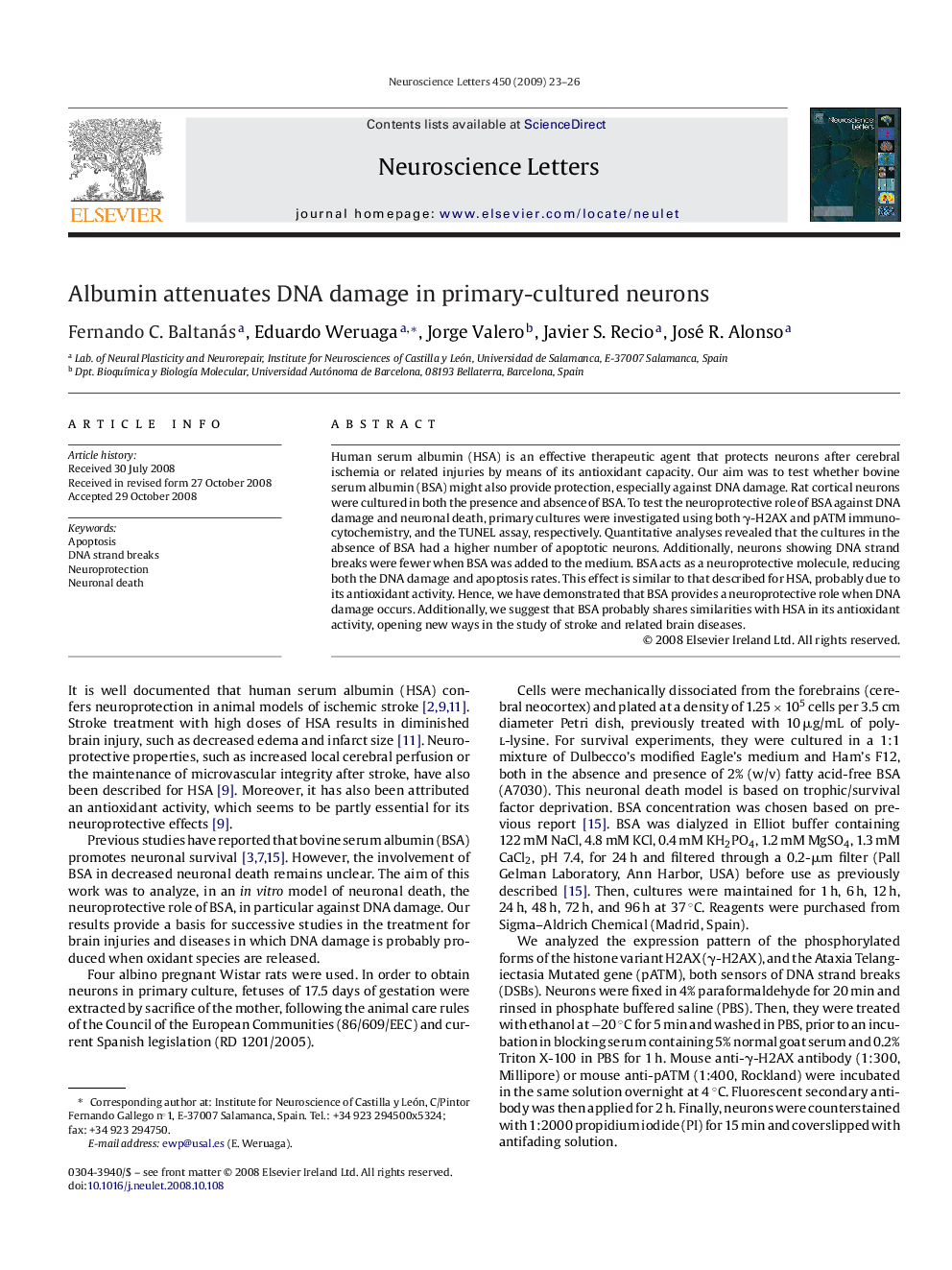| Article ID | Journal | Published Year | Pages | File Type |
|---|---|---|---|---|
| 4347562 | Neuroscience Letters | 2009 | 4 Pages |
Human serum albumin (HSA) is an effective therapeutic agent that protects neurons after cerebral ischemia or related injuries by means of its antioxidant capacity. Our aim was to test whether bovine serum albumin (BSA) might also provide protection, especially against DNA damage. Rat cortical neurons were cultured in both the presence and absence of BSA. To test the neuroprotective role of BSA against DNA damage and neuronal death, primary cultures were investigated using both γ-H2AX and pATM immunocytochemistry, and the TUNEL assay, respectively. Quantitative analyses revealed that the cultures in the absence of BSA had a higher number of apoptotic neurons. Additionally, neurons showing DNA strand breaks were fewer when BSA was added to the medium. BSA acts as a neuroprotective molecule, reducing both the DNA damage and apoptosis rates. This effect is similar to that described for HSA, probably due to its antioxidant activity. Hence, we have demonstrated that BSA provides a neuroprotective role when DNA damage occurs. Additionally, we suggest that BSA probably shares similarities with HSA in its antioxidant activity, opening new ways in the study of stroke and related brain diseases.
